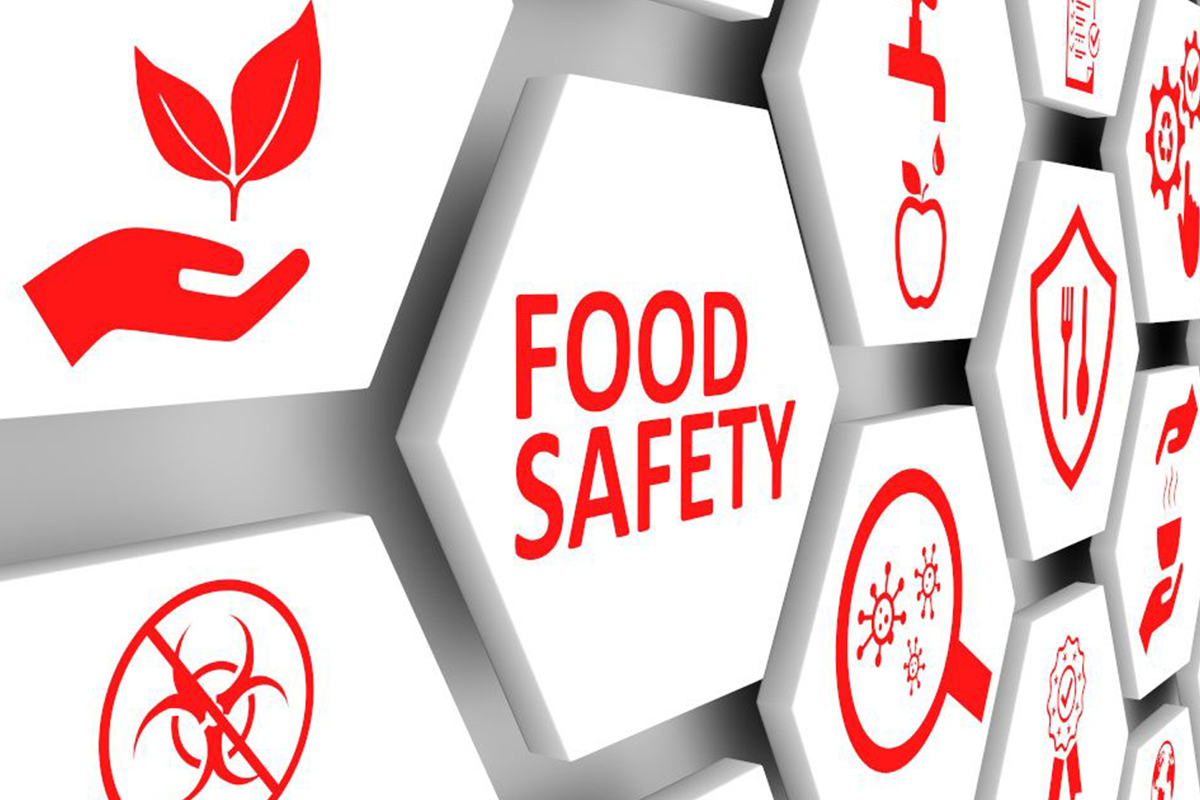Last Updated on April 11, 2025 by Admin
Table of Content
- Understanding FSMS
- The Importance of FSMS
- Creating an Effective FSMS Plan
- FSMS Certification
- The Food Safety Management Plan for FSSAI
- ISO 22000, Allergen management
- Use of technology for effective FSMS
- Conclusion
Do you ever wonder what are some critical aspects that keep your meals both delicious and safe? A robust Food Safety Management System is essential to ensure the safety of food products. Consumers and businesses alike place a high priority on ensuring that their food is safe to consume. Here, we will explore the significance of the FSMS plan, its role in maintaining food safety standards, and the process of obtaining FSMS certification. We will also delve into the Food Safety Management Plan for FSSAI and its pivotal role in the food safety management system, thus safeguarding the nation’s food supply chain.
Understanding FSMS
The ‘FSMS’ stands for “Food Safety Management System”. Food businesses use a structured and systematic approach to identify, control, and manage food safety hazards during food production. The primary objective of FSMS is to ensure that food products are safe, free from contamination, and adhere to the highest quality standards.
The Importance of FSMS
Contaminated or unsafe food can lead to severe foodborne illnesses, affecting consumers’ well-being and causing reputational damage to food businesses. FSMS provides a comprehensive framework to address food safety concerns, enabling companies to identify potential hazards, implement control measures, and ensure compliance with food safety regulations. By adhering to FSMS principles, businesses can protect consumers, enhance their brand reputation, and build customer trust.
Creating an Effective FSMS Plan
A well-defined FSMS plan is the cornerstone of ensuring food safety within a food business. The plan outlines the specific food safety procedures, protocols, and controls to be followed by the organisation. Critical components of an FSMS plan include:
1. Hazard Analysis: Conduct a thorough hazard analysis to identify potential food safety hazards during food production, processing, handling, and distribution.
2. Critical Control Points (CCPs): Identifying critical control points where control measures can be implemented to prevent or reduce identified hazards to acceptable levels.
3. Monitoring and Verification: Establishing processes to monitor the effectiveness of control measures and verify the overall performance of the FSMS plan.
4. Corrective Actions: Develop protocols for immediate corrective actions in case of any deviation from the FSMS plan.
5. Training and Education: Ensuring all employees receive proper training and education on food safety principles, hygiene practices, and their roles in maintaining food safety.
6. Record Keeping: Maintaining detailed records of all food safety activities, including hazard analysis, monitoring results, and corrective actions taken.
For example, in milk production/processing using the HACCP system, identifying CCPs (Critical Control Points) is essential. For example:
1. Raw Milk Reception: CCP is temperature. Milk should be received at ≤ 4°C. If above, corrective action includes rejecting the batch or cooling immediately.
2. Pasteurization: CCP is the temperature-time relation. Milk should be heated to 72°C for 15 seconds. If not achieved, the corrective measure is re-pasteurizing.
3. Cooling: CCP is achieving a temperature of ≤ 4°C post-pasteurization. If not cooled correctly, re-cooling is needed.
By monitoring these CCPs, milk safety is ensured, protecting consumers from potential hazards.
FSMS Certification
FSMS certification formally recognises that a food business has implemented a robust Food Safety Management System in line with internationally recognised standards. Obtaining FSMS certification demonstrates the organisation’s commitment to food safety and compliance with industry norms. It assures consumers, stakeholders, and regulatory bodies that the food products meet the highest safety and quality standards.
The Food Safety Management Plan for FSSAI
The Food Safety and Standards Authority of India (FSSAI) is the highest regulatory agency in India, and it is in charge of ensuring that food is safe for consumption throughout the country. The FSSAI has developed specific guidelines for implementing FSMS in food businesses to ensure the production of safe and hygienic food products. The Food Safety Management Plan for FSSAI includes the following key components:
1. Hazard Analysis Critical Control Point (HACCP): HACCP is a systematic approach to identifying, assessing, and controlling food safety hazards. The FSSAI requires food businesses to implement HACCP principles as part of their FSMS to prevent, eliminate, or reduce risks to acceptable levels.
2. Good Manufacturing Practices (GMP): GMP outlines the basic hygiene and operational requirements that must be followed by food businesses to ensure the production of safe and hygienic food products. It covers premises, equipment, personnel hygiene, and sanitation practices.
3. Good Hygiene Practices (GHP): GHP focuses on handling, storing, and transporting food products to minimise contamination risks. It emphasises proper temperature control, storage conditions, and hygiene practices throughout the supply chain.
4. Food Safety Training and Education: The FSSAI emphasises the importance of training and education for all personnel involved in food handling. Proper training ensures employees know food safety principles, hygiene practices, and their roles in maintaining food safety.
5. Traceability and Recall Procedures: Traceability and recall procedures are essential for FSMS for FSSAI. Food businesses must maintain detailed records of their suppliers and customers to facilitate quick and efficient product recalls in case of any safety issues.
ISO 22000, Allergen management
Allergen management under ISO 22000 requires organizations to establish comprehensive procedures to prevent cross-contamination, ensuring that products meant to be allergen-free remain that way. It involves identifying potential sources of allergen cross-contact, implementing control measures, and verifying their effectiveness. Correct labelling is also emphasized to ensure consumers are informed about allergen content. By integrating allergen management, ISO 22000 aims to protect consumers from unintentional allergen exposure and reduce allergic reactions.
Use of technology for effective FSMS
• Automated monitoring system (Temperature control sensors/ Inventory management/ Automated sorting and grading/ raw material management)
• Active packaging
• Traceability in whole supply chain
• Smart labels and packaging
• Inspection apps can help with essential components like automatic HACCP logs, preventing employee fraud or recommending corrective actions.
• Precision farming and automation at primary crop production level
Read Also: An Introduction to Food Safety Guidelines
Conclusion
Implementing a robust Food Safety Management System (FSMS) is paramount for safeguarding public health and ensuring the production of safe and hygienic food products. FSMS plan provides food businesses with a structured approach to identifying and managing food safety hazards at every stage of food production. FSMS certification further reinforces a company’s commitment to food safety and compliance with industry standards. In India, the Food Safety Management Plan for FSSAI ensures that food businesses adhere to strict food safety guidelines and contribute to a safer and healthier food supply chain. By embracing FSMS principles and procedures, food businesses can protect consumers, enhance their brand reputation, and contribute to a safer food environment.













